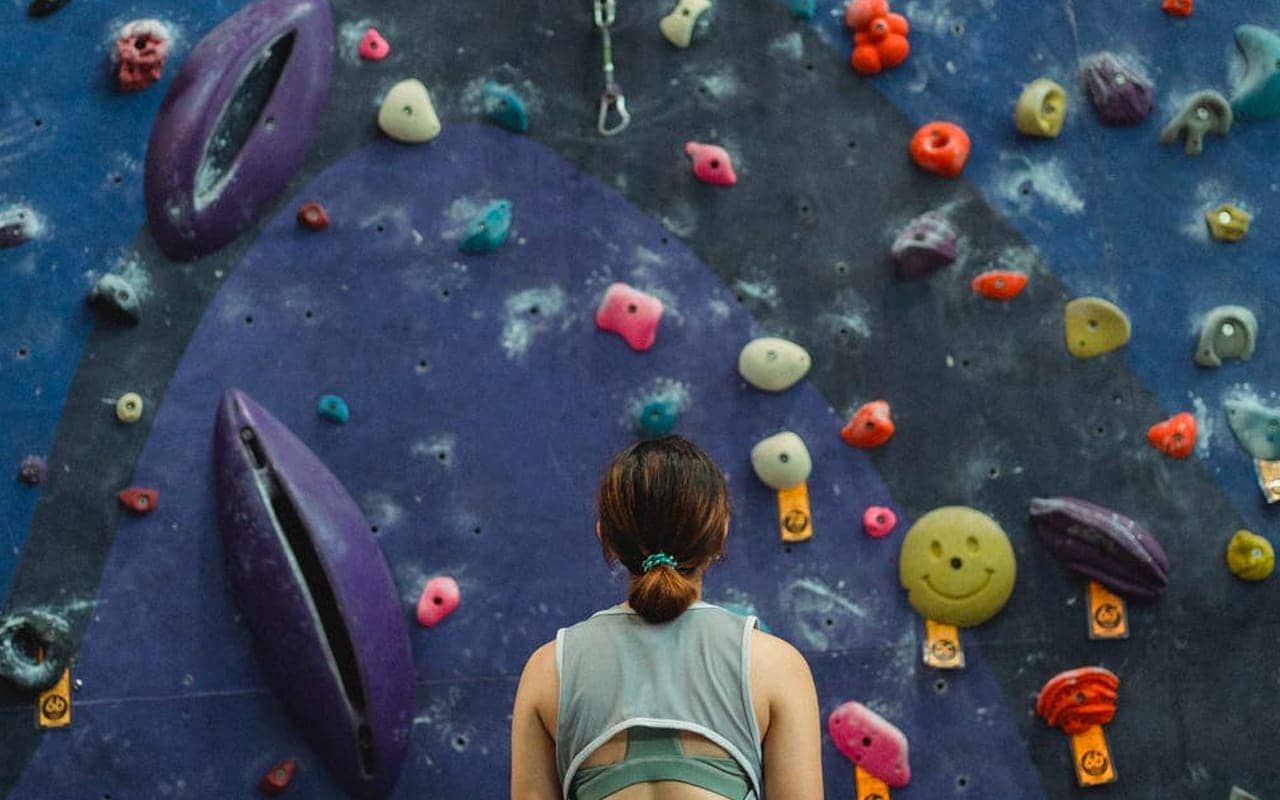Przejdź do trybu offline z Player FM !
How to Learn New Skills Quickly (And Keep Them Forever)
Archiwalne serie ("Kanał nieaktywny" status)
When?
This feed was archived on February 19, 2024 00:56 (
Why? Kanał nieaktywny status. Nasze serwery nie otrzymały odpowiedzi od kanału przez zbyt długi czas.
What now? You might be able to find a more up-to-date version using the search function. This series will no longer be checked for updates. If you believe this to be in error, please check if the publisher's feed link below is valid and contact support to request the feed be restored or if you have any other concerns about this.
Manage episode 328238194 series 1375140
 If you want to learn new skills, the process can be easy and fun.
If you want to learn new skills, the process can be easy and fun.
But let’s call a spade a spade:
What might challenge you are the steps involved.
Because one thing so many people miss is first learning the most effective process for rapidly acquiring a new skill.
Worse, you have all kinds of gurus telling you what to do and how to do it based on their journeys.
Sure, sometimes you can follow their tips.
But let’s get one huge problem out of the way from the get go:
You should not try to reproduce anyone else’s journey.
Why should you take me seriously – apart from the fact that I just gave you the most powerful advice for learning any new skill upfront?
Well, for one thing, I have rapidly learned skills that helped me become a person of accomplishment. I have:
- Written multiple bestselling books
- Accomplished goals in multiple languages
- Delivered a TEDx Talk with over 2 million views
- Built the world’s leading memory improvement website
- Completed a PhD, two MAs and multiple certificates
- Toured as a musician in multiple bands
- … and much, much more
Despite all those experiences, I’ll be the first to tell you that I still have a lot to learn. And that’s the next best tip I can give you upfront:
Keep humble. It helps you learn faster no matter how good you get.
So are you ready for the best nitty-gritty learning tactics I know?
Let’s get started.
How to Learn and Master New Skills Quickly
The first thing I would point out is that technically there’s no such thing as a “new skill.”
Now, this might be getting a bit philosophical, but I think the point is important.
Just because it’s “new to you,” doesn’t make it new. In fact, it wouldn’t even be called a “skill” if someone else hadn’t learned it first.
That’s why this first tip is so important.
One: Get Clarity On How The Skill Is Defined
Often, the people who have mastered skills completely define them very differently than those who want to learn it.
For example, if you read a book by Bruce Lee, you’re not going to get a lot of technical verbiage about the physics of movement. You will get something more akin to philosophy, which is very important.
Plus, you have a lot of publishing companies out there who hire people to write books about skills they don’t actually possess.

So rather than look at just how the mass media or publishers define the skill, make sure you also go to the source.
Two: Seek Experiences Wherever Possible
As part of going to the source, try to find ways to learn the skills through experience.
This doesn’t mean not reading books or taking video courses. You definitely want to do that, and make sure you read in a way that makes the information memorable.
I’m talking about supplementing the skill you want to learn with:
- Workshops
- Seminars
- Apprenticeships
- Field trips
- Long term coaching
- Working with a mentor
Even skills that are solitary, like reading and writing, benefit from working in groups. You can take breaks and talk with others, rapidly accelerating how you learn.
Three: Remove Limiting Beliefs
A lot of people think they have a particular learning style.
Whereas you might respond better to different kinds of visualization related to reading, there’s no reason to believe that anything holds you back.
As Tesia Marshik has shown in her research, learning outcomes don’t budge at all when educational material is presented in ways that cater to different learning styles. Check out her TEDx Talk for a quick overview of her work in this area.
Four: Make Your Own Metaphor
One of the reasons people blame “learning styles” for their failure to master skills is having a low-self image.

Fortunately, it’s fun and easy to use positive visualization to correct this issue.
You can also craft a personal metaphor. As Nir Eyal has shown in his research, many addicts have recovered thoroughly and completely after adopting a new persona.
The science behind this strategy is solid, but it’s also not new. Many philosophers, ranging from Plato to Nietzsche and beyond have suggested this strategy.
In my own case, I have often adopted personal metaphors like:
- My memory flourishes like a garden
- I am a Discipline Engine
- My life is floating along with calm and enjoyable cruising altitude
Practice creating and using your own metaphors and I’m confident you’ll find yourself learning new skills much faster.
Five: Embrace Mistakes
Fear of failure spreads like a disease.
It’s a particularly savage blight on the learning community because few things can be learned without making mistakes.
Many times when I want to learn a new skill, I know in advance that I’ll be making tons of mistakes.
When you accept and embrace this fact, you’ll enjoy more fulfilling success.
The trick is to employ the next step.
Six: Journal and Analyze
I always counsel my students in the Magnetic Memory Method Masterclass to use a Memory Journal.
https://www.youtube.com/watch?v=BracGhyKS4I
It’s an essential tool because it helps you keep track of your progress.
And when failure happens – as it inevitably will – keeping a journal helps you reflect on the exact nature of what went wrong.
Without analysis, it’s difficult to make corrections.
It also makes deliberate practice nearly impossible.
Seven: Break Things Down
It’s important to eat the elephant one bite at a time.
I’m not necessarily talking about microlearning, but rather seeing the component parts and seeing how they can be divided into small components.
For example, when I learned the very difficult skill of writing books, I didn’t just dive into 100,000 word tomes.
I started with small articles.
Even to this day, I write books one chapter at a time. And these are written one page at a time.
Likewise, when learning to market my books, I didn’t try to advertise on dozens of platforms all at once. I picked just one, learned its ropes and grew from there.
If you struggle with breaking things down, this is where adopting a personal metaphor can help. You can say, for example, “I am a master at breaking skills down.”
Eight: Balance the Challenge-Frustration Curve
Largely due to fear of failure, many people avoid challenges.

The problem is, if you don’t take on challenges, you cannot grow.
On the opposite end of the spectrum, many people rush into things so quickly that they wind up frustrated. That leads them to give up prematurely.
With this in mind, the best thing to do is balance what I think of as the Challenge-Frustration Curve.
There’s no chart or diagram that will show you how to do this. You simply have to maintain an awareness that you cannot grow without taking on challenges. And if things get too tough, you need to explore ways to reduce the frustration that will inevitably occur when you’re not skilled enough to continue – yet.
Nine: Avoid Unanswerable Questions
How long does it take to learn a new skill?
Well, let me ask you this:
If you really want the skill, does it really matter how long it takes?
Personally, I focus on acquiring new skills that I want to enjoy maintaining for life. I don’t want my mind cluttered with worrying about when I’ll finally master a skill.
Instead, I want to enjoy each and every step of the way.
In other words, mastery is ongoing practice. And the best way to pick up new skills is to act as if you will be learning them forever. This is another kind of mental metaphor that helps keep your focus where it belongs.
Ten: Take Breaks Strategically
Did you know that there’s a highly scientific way to take breaks?
It’s called interleaving. You literally focus on learning one skill for 15-20 minutes, then switch to something else.

The best part about it is that you can pick up multiple skills at the same time while accelerating your progress.
My fellow memory expert Dave Farrow has talked about how it helped him learn robotics quickly.
I find interleaving especially useful when reading, especially dense and technical books about philosophy.
Eleven: Be a Completionist
In the Magnetic Memory Method Masterclass, I pass on a few notes my best students have urged me to show new students.
To take one example, from Adolfo Artigas you get the stern warning not to skip around the program or “cherrypick.”
I find this important in every course I take myself.
And the only reason I can see why more and more people are missing out on crucial details is that digital amnesia is ruining their ability to focus for more than a few moments at a time.
The reason completing books and programs from beginning to end is so important has to do with your brain chemistry is that thorough learning requires tonic dopamine. In other words, you need a stable level of the brain chemical across time.
But when you flip between screens and tabs on your computer, you’re blasting yourself with phasic dopamine. It ruins your attention span.
Now, there are ways to skim and scan through books that doesn’t wreck your focus, but they’re not a replacement for being a completionist most of the time.

Twelve: Get Help If You Need It
Many people are too proud to get a coach or mentor.
That’s a shame because often times, personal guidance is the only thing that will help them move forward.
I’ve had many coaches and mentors and the only downside is that you sometimes have to experiment with a couple of them until you find a fit.
But that’s the same thing with trying on shoes, so it shouldn’t be a dealbreaker.
If you’re journaling as I suggested above, you should be able to find the right fit for you a lot sooner.
And when you’re practicing the mental metaphor technique I shared with you today, you’ll soon be able to add your mentor’s style to your mind.
You can literally save yourself a coaching hour by asking yourself, “What would my coach tell me to do about learning this skill?”
Learning New Skills Could Not Be Easier
Now that you’re equipped with some of my best tips, I hope you agree that learning any new skill is a lot easier than it seems.
The trick is to adapt a policy of complete and “radical” honesty.
Don’t let yourself or anyone else pull the wool over your eyes. There’s nothing to be gained from self-deception.
And one of the best skills of all to learn involves amping up your memory. That way, you won’t forget the tips you learned today.
If you’re interested, grab my FREE Memory Improvement Kit:
In it, you’ll learn to use a Memory Palace. This is a skill that gives you a mental toolbox for storing lessons like the ones you learned today.
And if you have any questions, just pop them in the comments.
So what do you say?
Are you ready to get out there and learn something new?
484 odcinków
Archiwalne serie ("Kanał nieaktywny" status)
When?
This feed was archived on February 19, 2024 00:56 (
Why? Kanał nieaktywny status. Nasze serwery nie otrzymały odpowiedzi od kanału przez zbyt długi czas.
What now? You might be able to find a more up-to-date version using the search function. This series will no longer be checked for updates. If you believe this to be in error, please check if the publisher's feed link below is valid and contact support to request the feed be restored or if you have any other concerns about this.
Manage episode 328238194 series 1375140
 If you want to learn new skills, the process can be easy and fun.
If you want to learn new skills, the process can be easy and fun.
But let’s call a spade a spade:
What might challenge you are the steps involved.
Because one thing so many people miss is first learning the most effective process for rapidly acquiring a new skill.
Worse, you have all kinds of gurus telling you what to do and how to do it based on their journeys.
Sure, sometimes you can follow their tips.
But let’s get one huge problem out of the way from the get go:
You should not try to reproduce anyone else’s journey.
Why should you take me seriously – apart from the fact that I just gave you the most powerful advice for learning any new skill upfront?
Well, for one thing, I have rapidly learned skills that helped me become a person of accomplishment. I have:
- Written multiple bestselling books
- Accomplished goals in multiple languages
- Delivered a TEDx Talk with over 2 million views
- Built the world’s leading memory improvement website
- Completed a PhD, two MAs and multiple certificates
- Toured as a musician in multiple bands
- … and much, much more
Despite all those experiences, I’ll be the first to tell you that I still have a lot to learn. And that’s the next best tip I can give you upfront:
Keep humble. It helps you learn faster no matter how good you get.
So are you ready for the best nitty-gritty learning tactics I know?
Let’s get started.
How to Learn and Master New Skills Quickly
The first thing I would point out is that technically there’s no such thing as a “new skill.”
Now, this might be getting a bit philosophical, but I think the point is important.
Just because it’s “new to you,” doesn’t make it new. In fact, it wouldn’t even be called a “skill” if someone else hadn’t learned it first.
That’s why this first tip is so important.
One: Get Clarity On How The Skill Is Defined
Often, the people who have mastered skills completely define them very differently than those who want to learn it.
For example, if you read a book by Bruce Lee, you’re not going to get a lot of technical verbiage about the physics of movement. You will get something more akin to philosophy, which is very important.
Plus, you have a lot of publishing companies out there who hire people to write books about skills they don’t actually possess.

So rather than look at just how the mass media or publishers define the skill, make sure you also go to the source.
Two: Seek Experiences Wherever Possible
As part of going to the source, try to find ways to learn the skills through experience.
This doesn’t mean not reading books or taking video courses. You definitely want to do that, and make sure you read in a way that makes the information memorable.
I’m talking about supplementing the skill you want to learn with:
- Workshops
- Seminars
- Apprenticeships
- Field trips
- Long term coaching
- Working with a mentor
Even skills that are solitary, like reading and writing, benefit from working in groups. You can take breaks and talk with others, rapidly accelerating how you learn.
Three: Remove Limiting Beliefs
A lot of people think they have a particular learning style.
Whereas you might respond better to different kinds of visualization related to reading, there’s no reason to believe that anything holds you back.
As Tesia Marshik has shown in her research, learning outcomes don’t budge at all when educational material is presented in ways that cater to different learning styles. Check out her TEDx Talk for a quick overview of her work in this area.
Four: Make Your Own Metaphor
One of the reasons people blame “learning styles” for their failure to master skills is having a low-self image.

Fortunately, it’s fun and easy to use positive visualization to correct this issue.
You can also craft a personal metaphor. As Nir Eyal has shown in his research, many addicts have recovered thoroughly and completely after adopting a new persona.
The science behind this strategy is solid, but it’s also not new. Many philosophers, ranging from Plato to Nietzsche and beyond have suggested this strategy.
In my own case, I have often adopted personal metaphors like:
- My memory flourishes like a garden
- I am a Discipline Engine
- My life is floating along with calm and enjoyable cruising altitude
Practice creating and using your own metaphors and I’m confident you’ll find yourself learning new skills much faster.
Five: Embrace Mistakes
Fear of failure spreads like a disease.
It’s a particularly savage blight on the learning community because few things can be learned without making mistakes.
Many times when I want to learn a new skill, I know in advance that I’ll be making tons of mistakes.
When you accept and embrace this fact, you’ll enjoy more fulfilling success.
The trick is to employ the next step.
Six: Journal and Analyze
I always counsel my students in the Magnetic Memory Method Masterclass to use a Memory Journal.
https://www.youtube.com/watch?v=BracGhyKS4I
It’s an essential tool because it helps you keep track of your progress.
And when failure happens – as it inevitably will – keeping a journal helps you reflect on the exact nature of what went wrong.
Without analysis, it’s difficult to make corrections.
It also makes deliberate practice nearly impossible.
Seven: Break Things Down
It’s important to eat the elephant one bite at a time.
I’m not necessarily talking about microlearning, but rather seeing the component parts and seeing how they can be divided into small components.
For example, when I learned the very difficult skill of writing books, I didn’t just dive into 100,000 word tomes.
I started with small articles.
Even to this day, I write books one chapter at a time. And these are written one page at a time.
Likewise, when learning to market my books, I didn’t try to advertise on dozens of platforms all at once. I picked just one, learned its ropes and grew from there.
If you struggle with breaking things down, this is where adopting a personal metaphor can help. You can say, for example, “I am a master at breaking skills down.”
Eight: Balance the Challenge-Frustration Curve
Largely due to fear of failure, many people avoid challenges.

The problem is, if you don’t take on challenges, you cannot grow.
On the opposite end of the spectrum, many people rush into things so quickly that they wind up frustrated. That leads them to give up prematurely.
With this in mind, the best thing to do is balance what I think of as the Challenge-Frustration Curve.
There’s no chart or diagram that will show you how to do this. You simply have to maintain an awareness that you cannot grow without taking on challenges. And if things get too tough, you need to explore ways to reduce the frustration that will inevitably occur when you’re not skilled enough to continue – yet.
Nine: Avoid Unanswerable Questions
How long does it take to learn a new skill?
Well, let me ask you this:
If you really want the skill, does it really matter how long it takes?
Personally, I focus on acquiring new skills that I want to enjoy maintaining for life. I don’t want my mind cluttered with worrying about when I’ll finally master a skill.
Instead, I want to enjoy each and every step of the way.
In other words, mastery is ongoing practice. And the best way to pick up new skills is to act as if you will be learning them forever. This is another kind of mental metaphor that helps keep your focus where it belongs.
Ten: Take Breaks Strategically
Did you know that there’s a highly scientific way to take breaks?
It’s called interleaving. You literally focus on learning one skill for 15-20 minutes, then switch to something else.

The best part about it is that you can pick up multiple skills at the same time while accelerating your progress.
My fellow memory expert Dave Farrow has talked about how it helped him learn robotics quickly.
I find interleaving especially useful when reading, especially dense and technical books about philosophy.
Eleven: Be a Completionist
In the Magnetic Memory Method Masterclass, I pass on a few notes my best students have urged me to show new students.
To take one example, from Adolfo Artigas you get the stern warning not to skip around the program or “cherrypick.”
I find this important in every course I take myself.
And the only reason I can see why more and more people are missing out on crucial details is that digital amnesia is ruining their ability to focus for more than a few moments at a time.
The reason completing books and programs from beginning to end is so important has to do with your brain chemistry is that thorough learning requires tonic dopamine. In other words, you need a stable level of the brain chemical across time.
But when you flip between screens and tabs on your computer, you’re blasting yourself with phasic dopamine. It ruins your attention span.
Now, there are ways to skim and scan through books that doesn’t wreck your focus, but they’re not a replacement for being a completionist most of the time.

Twelve: Get Help If You Need It
Many people are too proud to get a coach or mentor.
That’s a shame because often times, personal guidance is the only thing that will help them move forward.
I’ve had many coaches and mentors and the only downside is that you sometimes have to experiment with a couple of them until you find a fit.
But that’s the same thing with trying on shoes, so it shouldn’t be a dealbreaker.
If you’re journaling as I suggested above, you should be able to find the right fit for you a lot sooner.
And when you’re practicing the mental metaphor technique I shared with you today, you’ll soon be able to add your mentor’s style to your mind.
You can literally save yourself a coaching hour by asking yourself, “What would my coach tell me to do about learning this skill?”
Learning New Skills Could Not Be Easier
Now that you’re equipped with some of my best tips, I hope you agree that learning any new skill is a lot easier than it seems.
The trick is to adapt a policy of complete and “radical” honesty.
Don’t let yourself or anyone else pull the wool over your eyes. There’s nothing to be gained from self-deception.
And one of the best skills of all to learn involves amping up your memory. That way, you won’t forget the tips you learned today.
If you’re interested, grab my FREE Memory Improvement Kit:
In it, you’ll learn to use a Memory Palace. This is a skill that gives you a mental toolbox for storing lessons like the ones you learned today.
And if you have any questions, just pop them in the comments.
So what do you say?
Are you ready to get out there and learn something new?
484 odcinków
모든 에피소드
×Zapraszamy w Player FM
Odtwarzacz FM skanuje sieć w poszukiwaniu wysokiej jakości podcastów, abyś mógł się nią cieszyć już teraz. To najlepsza aplikacja do podcastów, działająca na Androidzie, iPhonie i Internecie. Zarejestruj się, aby zsynchronizować subskrypcje na różnych urządzeniach.





